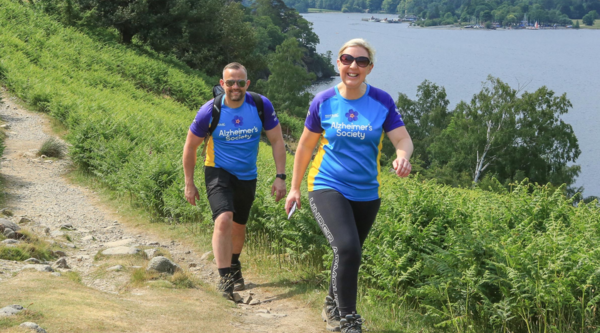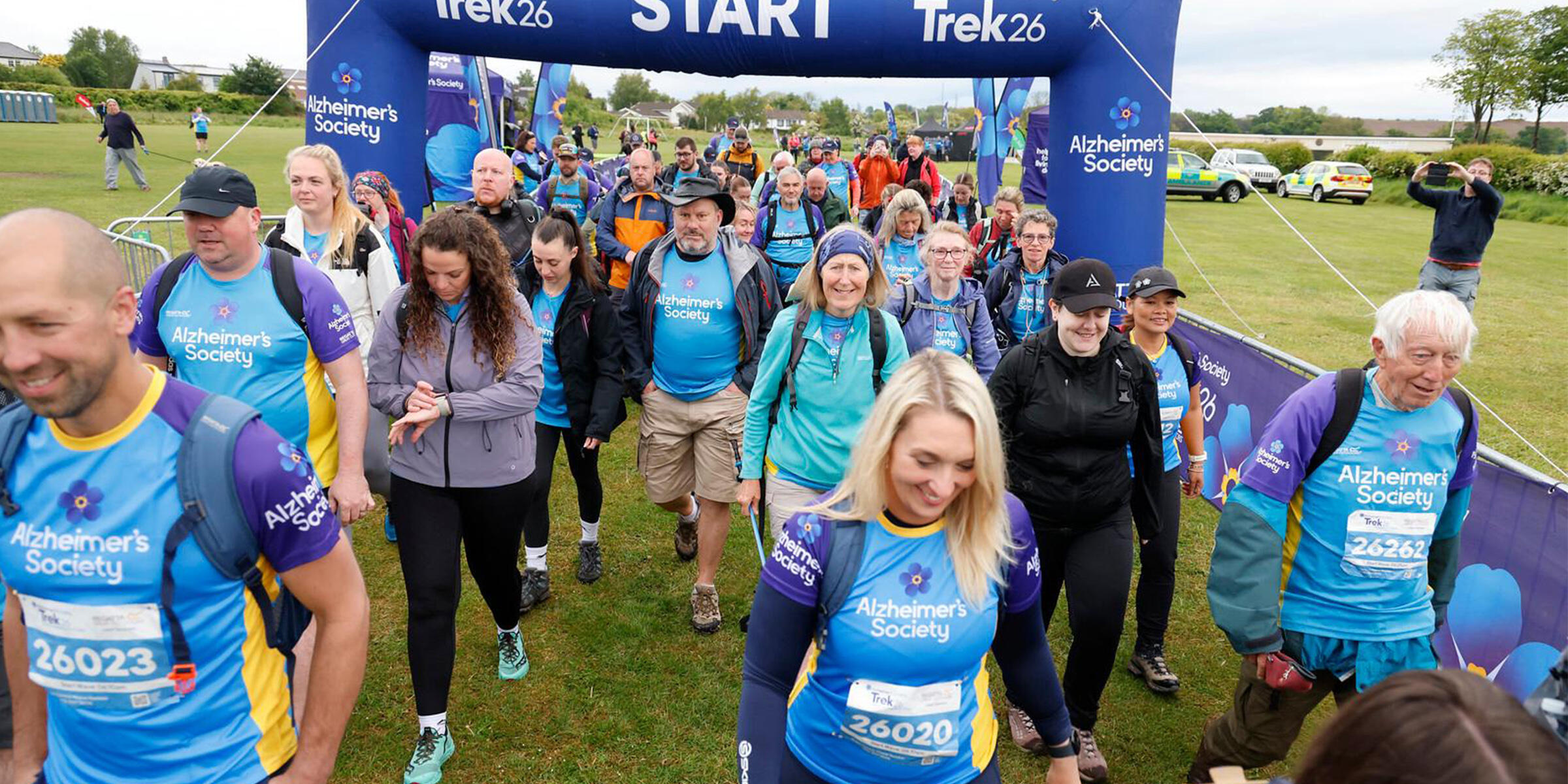
Real stories
‘Life is for living and making a difference’ – how dementia has affected my family and my outlook
Sally Beckett, in Birmingham, has supported three close family members with Alzheimer’s and says that it has influenced how she lives her life.
Everyone who supports Alzheimer’s Society has their own reasons for doing so.
For Sally Beckett, there are three – and all of them are deeply embedded in her family.
Sally’s late mother Joan, her mother’s twin sister and her own sister have all had Alzheimer’s disease diagnoses.
‘I always think that something good should always come out of something bad,’ says Sally, a mother of four from Birmingham.
‘When I do things to make a difference to people’s lives, that makes me feel better.
‘Everybody needs someone that they can rely on if they’re in trouble and to know that they’re not alone. That’s my philosophy in life.’
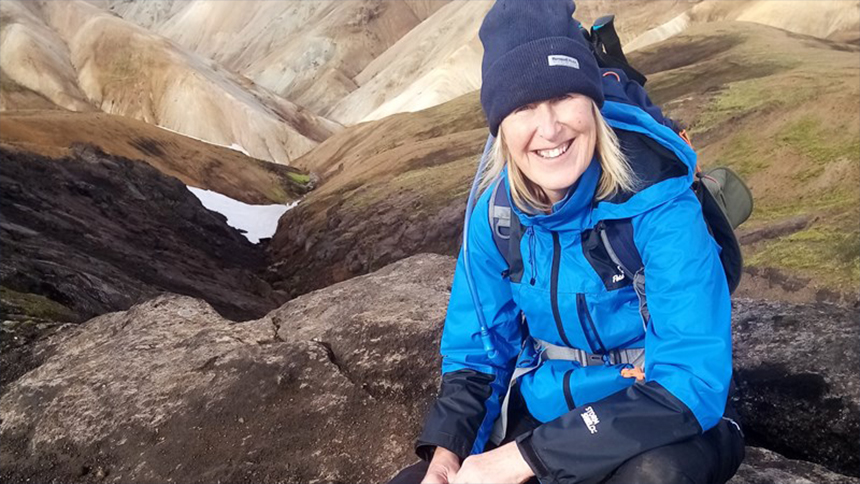
Living with a parent who has dementia
Sally, who’s 74, suggested her mum live with her after Joan’s condition made it impossible for her to keep living alone.
‘I wasn’t brought up with rich parents, but I had a good childhood and a happy childhood,’ she says.
‘When it’s your mum, I think you can feel an automatic sense of duty to care for her. So, when the time came, I nursed my mum 24/7 for four years.’
She knows that intense caring duties can be tough.
‘You lose a bit of time from your own life, but I would never turn the clock back and not do it. I still feel relief that I did my best. Mum lived two years longer than her life expectancy.
‘At one point the hospital had written her off, saying she had no gag reflex and couldn’t eat or drink, and I proved them wrong. Then I told them I was taking her home. They said, “How can you do that?” and I replied, “The same way we came in,” and I put her in the car.’
Support is important when you're a carer
Sally’s message to other carers is to reach out for help and support if you need to.
If you find caring too traumatic or difficult, then you need backup.
‘I had to have carers helping me with Mum when she wasn’t weight-bearing. I needed professional equipment at home because you can’t lift people on your own.’
Sally remembers some precious times with her mum at the home she shares with her husband.
‘I remember her sitting in her wheelchair, watching me decorate the lounge. I used to stop and give her a cup of coffee at 11, and then stop and make dinner, then tea in the afternoon.
‘I worked as a podiatrist and a reflexologist at home. Sometimes she sat in my surgery and had a bit of a chat with the patients, with a nice cup of tea and a piece of cake, so she wasn’t bored.
If I had spare time, we took her out for a drive or to somewhere nice or maybe her favourite place.
Difficult moments with dementia
There were difficult moments.
‘It was very upsetting when her best friend from her time working at the Cadbury’s factory came to see her. She’d known Nancy for 72 years.
I said, “Mum, look who’s here. It's Nancy,” and she said, “It can’t be Nancy. I’m not stupid. Nancy had black hair.” I said, “This is her natural colour now. She’s got older.”
‘People with dementia don’t know they’re upsetting people. When Mum became aggressive with Nancy, I asked the doctor for some calming medication and that really helped.’
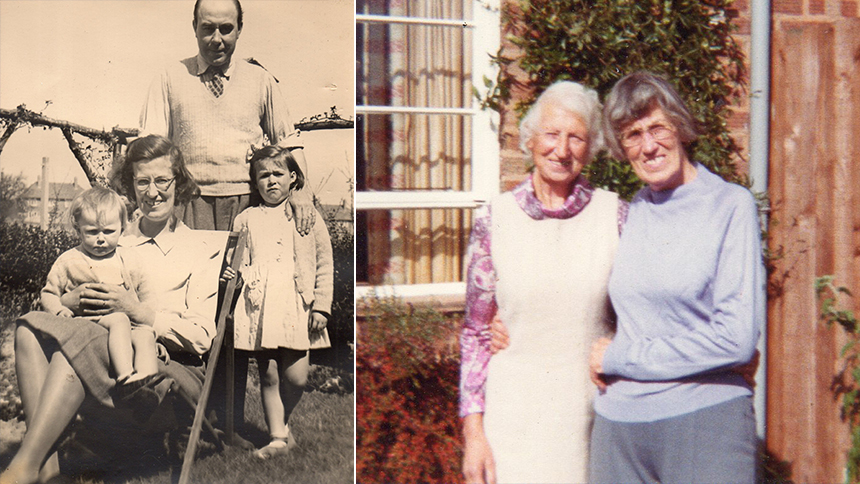
Sally and her family (left), Joan and her sister Margery (right)
My aunt also had dementia
After this, Joan met up with her twin Margery, whose Alzheimer’s was more advanced.
‘Mum was really, really looking forward to seeing her but her sister looked at Mum and said to me, “Who is this lady? Do I know her?” Another deeply sad moment.’
At other times her mum felt great comfort. Sally showed her one of her childhood dolls, and her mum started caring for it, like a baby.
After Joan died at 87, Margery became very ill.
Sally travelled to her nursing home in Yorkshire and stayed with her until she died. She didn’t like to think of a family member dying alone.
What caring has taught me
Sally’s attention has now shifted to her own sister Wendy, who also has Alzheimer’s.
‘Now I feel guilty because I don’t spend as much time with her as I could. I volunteer at a school, but I’m thinking of dropping one of those days.
‘This is the time when I ought to be taking some of the load from her husband. That’s what my conscience is telling me.’
Sally’s time as a carer has taught her so much.
I try to treat people as they were, not as what they’ve become. People want to be a part of life, loved, and not sidelined.
‘When you have Alzheimer’s, people do tend to swerve conversations away and talk to a partner or carer or anybody else. I try never to do that. I talked to Mum with the same kindness as I always did.
‘From what I’ve seen with Alzheimer’s, when your memory is bad, you don’t realise this because you’re in a little world of oblivion.
‘The worst thing for anyone is to lose their independence, and if they were totally aware of what was going on around them, they would feel 10 times worse.
‘Instead, it’s those who are around you who have the worries, and day-to-day life is harder for them.’
Could I have dementia too?
With so much dementia in her family, Sally has her own personal concerns about the condition.
‘I still manage to laugh when I put my purse in the fridge or forget names – even my own children’s names.
‘Sometimes I’m midway in conversation, and I stop and think, “What am I talking about?” or “What was I going to say?”’
Her concerns became so great she asked her GP to refer her for a brain scan and blood test.
‘When I was waiting for the consultation in the hospital, I picked up a copy of Dementia together magazine on a table. It rings bells when you read about other people’s experiences, when you’ve been a carer yourself. It’s a relief to know someone else has experienced what you have.
‘It was also a relief to learn my test results were normal.’
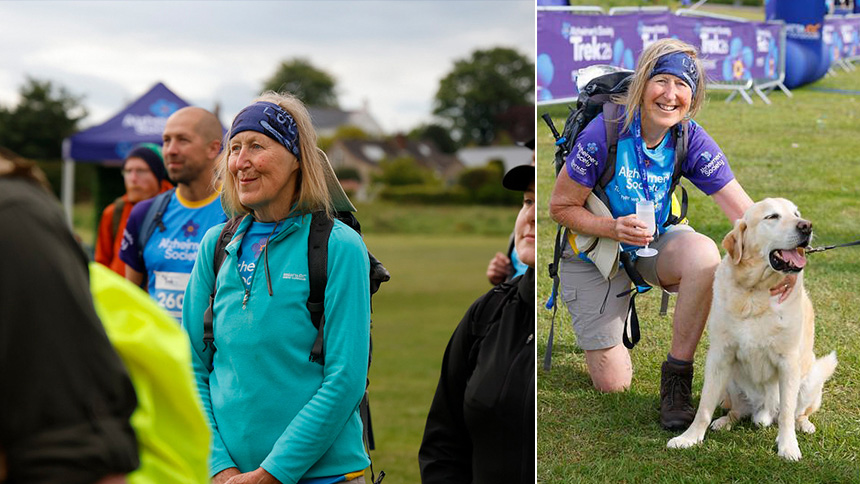
How my faith keeps me strong
Her experiences with Alzheimer’s have taught Sally a huge lesson, she says.
‘They have shown me I should enjoy life to the full, so I never have any regrets.
‘I’m fit and well and healthy. I could walk out of the door now, cross the road, go to the bus stop and get run over. We are all terminal, but I don’t fill myself with doom and gloom.
‘Fortunately, I have my faith. I know there’s something after life, not the end but merely a new chapter.’
Fundraising for Alzheimer's Society
An advert she saw for Trek 26 Northumberland chimed with her enthusiasm for life.
Sally loves being outdoors and decided to sign up for the 26-mile walk.
‘I adore walking, nature and the great outdoors. I believe it makes a significant improvement to your physical and mental wellbeing.’
‘The walk was well organised. They had breakfast for everyone in the morning before the start, and they had intermediate stops for toilet breaks, lunch and water.
‘They’ve people en route who are guiding you and passing on information to the people in charge if it’s needed. It was a lovely atmosphere.
‘Most of all, I was pleased to walk in memory of my mum, her twin sister and for my sister who is going through it at the moment.’
The walk fitted perfectly with the way Sally lives her life.
This was part of my philosophy – to be positive, to live in a way that will benefit you and everyone else.
‘Life is for living and making a difference to other people’s lives,’ she stresses.
‘Carpe diem (seize the day) – enjoy every second, every moment of each day.’


